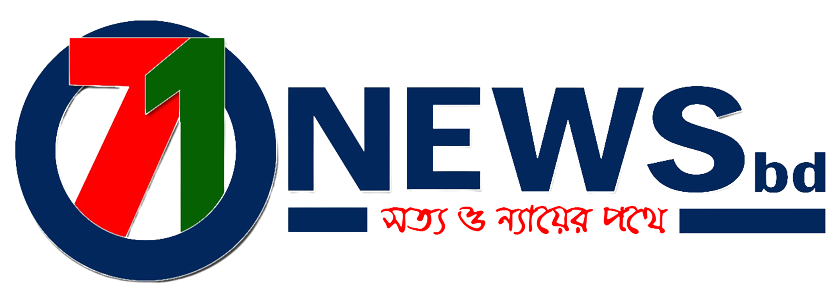
Students stage nationwide stiff protest July 4 centering quota hearing
 DHAKA, July 04, 2025 – The students staged huge demonstrations across the country on July 4 as the Chamber Court of the Appellate Division set the day for hearing on the appeal filed by the state challenging the High Court's order to retain the quota system in government jobs.
DHAKA, July 04, 2025 – The students staged huge demonstrations across the country on July 4 as the Chamber Court of the Appellate Division set the day for hearing on the appeal filed by the state challenging the High Court's order to retain the quota system in government jobs.
But the Appellate Division's judgment frustrated the student protesters as the court ordered of keeping the High Court's ruling upheld, prompting them to intensify their movement across the country and announce fresh programmes to press home their demand for scrapping the quota system in government services.
The programmes included demonstrations at all universities and colleges on July 6 and a nationwide student strike with class and exam boycotts on July 7.
The demand centered on reinstating the 2018 circular that abolished quotas in government jobs, along with calls for rational reforms if necessary.
Despite heavy rain on July 4, students from different educational institutions in the capital joined the Dhaka University (DU) students under the banner of the "anti-discrimination student movement".
They blocked the Shahbagh intersection for around six hours. Later in the evening, the demonstrators left the streets after announcing a new three-day programme.
That same day, students from Dhaka, Jahangirnagar, Jagannath, Rajshahi, Chattogram, Barishal, Cumilla, Khulna and other universities took an oath to continue their protest on the streets until their demands were met.
Earlier, on June 5, the High Court declared illegal the government's 2018 circular abolishing all quotas, including 30 percent for descendents of freedom fighters.
The court ruling sparked widespread debates on social media and triggered protests at Dhaka University and other places. The government filed an appeal seeking a stay on the verdict.
Dhaka University led the movement centrally. Students across the country joined the Facebook group "Quota Punorbohal Chaina, (No to quota reinstatement)" which became the main platform for updates and coordination. A Telegram group with the same name was also created by the protestors.
From July 4, general students began participating in the movement in large numbers. Between July 4 and 5, students from each department and batch at Dhaka University issued joint statements expressing solidarity with the anti-discrimination student movement's call to boycott classes and exams. This resonated across other universities as well and gained significant traction on social media.
Around 11:30 am that day, thousands of students and job seekers gathered in front of Dhaka University's central library under the banner of the Anti-Discrimination Student Movement.
Marching through the gates of Masterda Surja Sen Hall and Haji Muhammad Mohsin Hall, they circled the VC Chattar, Raju Memorial Sculpture and finally blocked the Shahbagh intersection.
After ending the blockade around 6pm, they returned to Raju Memorial Sculpture and announced a fresh three-day program.
Nahid Islam, a key-coordinator of the Anti-Discrimination Student Movement, declared that on Friday (July 5), students would conduct online and offline publicity and coordination activities across colleges and universities. On Saturday (July 6) at 3 pm, demonstrations would be held across the country and on Sunday (July 7), all classes and exams would be boycotted as part of the nationwide student strike.
He also announced the field-level programmes for Sunday would be declared during Saturday's demonstration.
Commenting on the Appellate Division's decision to uphold the High Court order, Nahid Islam said, "In 2018, the executive branch abolished the quota through a circular. Now, the judiciary has reinstated it. This is a mockery with the students. It shows a lack of coordination within the state apparatus. The executive issues one order, the judiciary nullifies it. Students have no role in this internal conflict of state organs."
That same day, student leaders from the ruling party's student wing, Bangladesh Chhatra League (BCL), reportedly attempted to obstruct students from joining the protests by locking dormitory gates at Dhaka University.
Some students were even confined in so-called "guest rooms." Protesters later broke the locks and freed fellow students to join the demonstration.
Students from various public universities blocked major roads to press their demand for quota abolition. Around 12:30pm, students from Jahangirnagar University blocked the Dhaka-Aricha highway near the main gate, creating traffic congestion on both lanes until the blockade ended around 1pm.
Similarly, Jagannath University students blocked the Ray Shaheb Bazar intersection in Puran Dhaka. Sher-e-Bangla Agricultural University (SAU) students gathered at Agargaon intersection in the capital. Chittagong University students blocked the Chattogram-Khagrachhari highway.
Rajshahi University students demonstrated on the Dhaka-Rajshahi highway, while Khulna University students blocked Zero Point in Khulna. Islamic University (IU) students took to the Kushtia-Khulna highway and Cumilla University students demonstrated on the Dhaka-Chattogram highway.
Copyright © 2025 ৭১ নিউজ বিডি. All rights reserved.